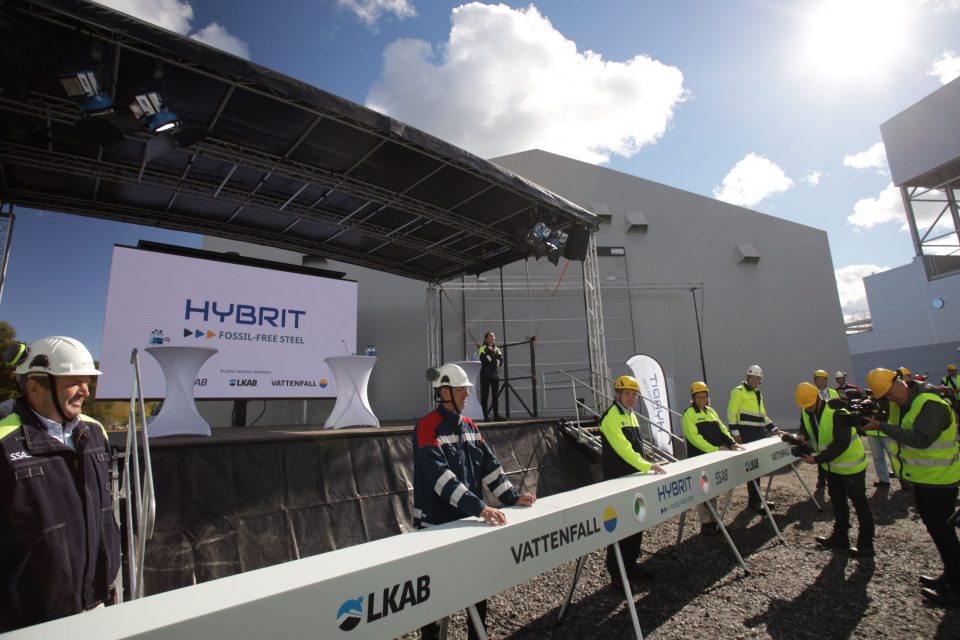HYBRIT will revolutionize the iron and steel industry. SSAB, LKAB and Vattenfall have started HYBRIT (Hydrogen Breakthrough Ironmaking Technology) to develop a fossil-free value chain for iron and steel production using fossil-free electricity and hydrogen, thus minimizing the carbon dioxide emissions throughout the value chain. The HYBRIT technology involves replacing the blast furnace process, which uses carbon and coke to remove the oxygen from iron ore, with a direct reduction process where we use fossil-free hydrogen produced from water using electricity from fossil-free energy sources. Instead of carbon dioxide, water vapor is formed. We are thus creating the world’s first fossil-free reduction of iron ore to give sponge iron, a central step for fossil-free iron and steel production. Success requires research, development and cooperation.
The Swedish iron and steel industry is already climate-efficient by international standards, but that’s not enough. For this reason, the HYBRIT initiative was started by SSAB, LKAB and Vattenfall, receiving financial support from the Swedish Energy Agency and EU’s Innovationfund for different parts of the initiative. The goal is a unified, unique value chain, from mine to fossil-free steel. The steel industry currently accounts for about ten percent of Sweden’s carbon dioxide emissions and seven percent of the global emissions. We will change this, thanks to our ongoing research and innovation.

Since 2016, HYBRIT has been working to develop the world’s first fossil-free steel through unique technology. The way there passes through our pilot direct reduction plant in Luleå, Sweden, which was completed in 2020, the first of its kind. In the plant, the experimental development of a process to reduce iron ore using fossil-free hydrogen, which is split from water in electrolysis, is proceeding. Adjoining the pilot plant, an underground hydrogen storage facility has been built, which will be operational from 2022 to 2024. At LKAB Malmberget, unique long-term trials of pellet production with non-fossil fuels have been conducted in order to achieve the fossil-free production of iron ore pellets. The trials have been successful, and in autumn 2020 the world’s first fossil-free pellets were produced.
Alongside the development of the pilot direct reduction pilot, we are preparing the next step, a demonstration plant that we are planning to commission to make fossil free steel available to the market in 2026. Here, a fossil-free value chain from iron ore pellets to steel will be demonstrated for the first time on a large scale.